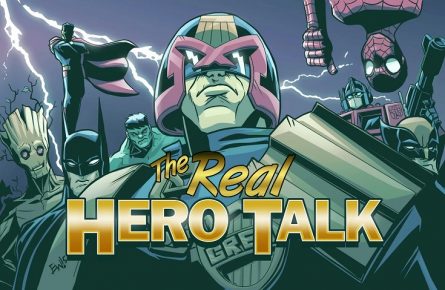Behind the Line: Gaming Unions

I can’t help but notice that there’s been a trend in gaming news recently covering stories of worker layoffs, studio closures, and the like. There are a number of human interest style stories on Kotaku, deeper business pieces on Gamasutra, and as always, the endless variety of personal accounts in the Tales from the Trenches. In the discussions I’ve seen on these articles, there are a lot of calls for industry reform, calling for unions, and the like, with some people trying to point out that the gaming industry needs some equivalent to the Screen Actors Guild. Now, as we all know, comments under an article on a website are not the best way to take the pulse of the mindset of the general population, but I think this offers an interesting opportunity to offset some misconceptions about the gaming industry, and why certain calls for change are as misguided as certain desires to get into the industry.
Hit Driven Business
One of the most important things to realize is that the video games industry is primarily a hit driven business, and failure is the default for a project in this industry. Sure, the games industry overall makes more than Hollywood now, but for every GTA V, there are hundreds of games that won’t earn back 1/10th of their development costs. For the industry as a whole this cost, this risk must be distributed. This applies financially as well as with personnel. A friend of mine once said that, as an analyst, he could look at any game and simply say “this will fail”, and he be correct 90%-95% of the time. Of course, as an analyst, the purpose is to find that less than 10% and guide them to success, so being a naysayer may be fairly accurate, but there’s no value in it.
Publisher – Developer relationship
Another aspect that is important to understand is the relationship between the publisher and the developer. The developer is the team that actually makes the game, the actual coding, art, design, and so forth. The publisher is the one that will provide the investment to fund the developer while they make the game, provide support with marketing, customer support, community management, and so forth. The details will change from one project to another, but that’s the general idea.
A successful publisher will probably plan to fund something like 10 titles with the hope that one will actually make money. What happens to the other 9 projects? If they’re very lucky, the publisher might see the potential of the developer team, everyone involved will be able to see a clear point that caused the problem, and be willing to re-invest in a new project. However, it’s most likely the developer will have the support from the publisher cut off, likely on terms laid out in a contract, and they’ll need to pitch another idea to another publisher. If they can’t find a new deal, then they will have to fold.
Clearly, with a business that can boom or bust so spectacularly, there will be a lot of churn. Development teams will break up, mix with each other to create something new, sometimes the same team will come back together and be able to try again. They push forward, always in search of the special alchemy of imagination, vision, and team chemistry that can produce a special gaming experience, but also one that can actually make money to keep them in business. Publishers, on the other hand, may not have much in the way of a profit margin when the cost is distributed. They’ll have to work hard to make their profitable game as profitable as they can to cover other developers in the search to find the next profitable title. This all makes those obnoxious annual update releases like COD, Madden, Assassins Creed, etc. make a lot more sense now, eh?
Meaning for Employees
Everything I’ve said above is well understood by people who have spent any significant time in the gaming industry. We all know people who left the industry for a variety of reasons. They were financially burned, worked too hard and burnt out, unable to manage the instability, different priorities taking over their life, disillusioned to the realities of the industry, or what have you. We also know that there are always more young people coming out of school, loving games, wanting to contribute to the medium that has brought us all together, who could replace us at any time.
We go into it with our eyes open, knowing what the chances are for any project, and how replaceable any one of us really is. Many can get better job security in other industries where the margins aren’t so thin, and for better pay…so, why are we in this industry?
I can’t speak for everyone, but for myself, there are a few reasons.
- The People – The people in the games industry are fascinating. You can’t spend a long time in the industry unless you are passionate, and that passion is what makes people so interesting. I don’t know how long I could stand working away from that with…when I was young there was the term “mundanes”. Nowadays the term is “muggles”.
- Learning – There is always something new and interesting to learn. No one could understand the entire breadth and scope of a large project. There’s too many moving parts, so many deals being woven, so many different pieces of technology both hardware and software.
- Games – Games are a passion of mine, and like many people in the industry, I enjoy being able to contribute to the medium.
We take the risks, we stay in the game, so to speak, and hope we can make our next project a success. We know things can fall apart, but moreover we know why they could fall apart. We know that it may not be our boss that has to pull the plug, we know it may not be another company that pulls the plug, we know it may not even be the company that owns the other company that pulls the plug, and we even know that being a moderate success may not be enough to stop all of the forces from coming together to pull the plug. That’s just the way it is.
Employer Ethics
All of this is just the real world application of the principle known as “Sturgeon’s Law”. For those who have never heard of this, it simply states: “90% of everything is crap”. This includes the game pitches, the games themselves, the teams that make the games, the publishers, and even the employees.
Many groups will fail, companies will downsize or fold, and many jobs will be lost. Many employers try to do what they can to make things as easy for the employees as they can. Some certainly have varying degrees of success with this, and there are clearly those who are truly exploitative of their workforce and do nothing to help an employee with a transition.
Now here is the big question that this all builds up to: Are current practices sufficient for the employees? Should there be more protection for employees in these situations, and if so, what should those protections be?
Personally, I think that a union, by the commonly understood definition of the term these days, would not be able to succeed in the industry. There are always too many bright, young, hungry, innovative people desperately eager to get into the industry. Some may want it due to illusions about what the industry is like, but that doesn’t mean they won’t be able to work till those illusions are shattered. Too much international reach prevents a publisher from simply reaching out to developers in Romania, or Brazil, or any other location where a Union may not make the cost, and therefore risk, greater. It is too easy to hire people classified as independent contractors and sidestep everything all together. The line defining “independent” is too blurry, especially in the days of crowd funded projects. I can only see that adding bulk, bureaucracy, and cost to an industry that survives on quick reaction time, creativity, and ramen noodles.
Does that mean there should be nothing? No. I merely think that having a collective bargaining authority and possibility for strikes, costs more than it gives back in this environment. I hesitate to call this a solution, but I think that one option is to look at this from two sides:
- Employer: They should be held to minimal standards when releasing someone, or in the case of a team dissolving, and some degree better than the legally required minimum. Perhaps an industry standard notification period of 2 weeks. Since it’s considered proper etiquette to give 2 weeks notice when leaving, it should be the other way around as well. Maybe something could be done to have a brief extension of health benefits that makes financial sense to the employer, but I am not well versed enough on the topic to even venture a suggestion.
- Employees: They MUST know what their rights are, and what they are owed from the company at all times, and be willing to stand up for their own individual rights when pressed. This is much simpler to describe than the employer side, but much harder to execute, because the responsibility is on all of us. We can’t look at someone else and say: “it’s their fault”, and walk away with a clear conscience. This is something that everyone must look at for themselves.
Final Thought:
Yes, we are surrounded by failures, constantly, and once in a while, we experience a success so unfathomably massive, that it holds up everything else around it. The business meaning of the term “tent pole” has never felt so appropriate to me as now while I write this description.
Sure, there will be moderate successes here and there, titles that justify themselves and post a modest profit, but the failures, and the money lost funding them are something that can’t be ignored. Jobs will be lost…lots of them, every year. Some jobs will be lost at a company that has absolutely no means to do any better for the people, and it will cause another heart-wrenching story. Hopefully the employers in those cases will care, and will have tried, but in the end what happens happens, and this is not unique to this industry. Really, if there’s anything that can help, it is having managers and executives that don’t treat their entire teams like cogs. I can go into more about that, but that’s another topic for another day.
Finally, if you wonder how much money a big title can make, and how bad failures can be, consider Duke Nukem Forever. Duke Nukem 3D made so much money that it funded almost 14 years of development on Duke Nukem Forever. If that money and that team hadn’t been kept stagnant, consider how many games that could have funded. Consider how many jobs that would have created. Consider how many could have succeeded. Consider what that could have contributed to the industry with new ideas and talent. But also consider how many of those games would have failed How many jobs that had been created would then have been lost. They probably would have made returns to continue developing DNF, for better or worse. But in the end, DNF itself failed, and had to be rescued, finalized, and released in a state that no one was truly satisfied with. The team worked on it for 14 years. They had job security, but they complained of stagnating and some left because of it. In the end, they didn’t have a lot to show for their time.
Failure is around is in all aspects of life. It’s inevitable, but we can still take something from it. I hope all of our next failures are as rewarding as my last ten years of failure in the industry…and maybe, just maybe, some of us can get a success in here and there as well.
Kynetyk is a veteran of the games industry. Behind the Line is written to help improve understanding of what goes on in the game development process and the business behind it. From “What’s taking this games so long to release”, to “why are there bugs”, to “Why is this free to play” or anything else, if there is a topic that you would like to see covered, please write in to kynetyk@enthusiacs.com












I’d be curious to know if you’d written this article before or after the Maxis announcement? Stuff like that is sad, even when you see it coming.
I think my first draft was before the Maxis announcement. The topic’s been on my mind for a while, though. The series of Kotaku articles in particular, as well as the comments under them, stick in my craw a bit. Coming from the most churn-y area of gaming, and being in it for over a decade, I get a little upset at people not knowing what they’re talking about sometimes.
… I’m stopping now before this turns into another rant…
Another rant? Or another article? 😉
Great read by the way.
If it becomes another article, I probably shouldn’t put it in the comments under the first article, eh?